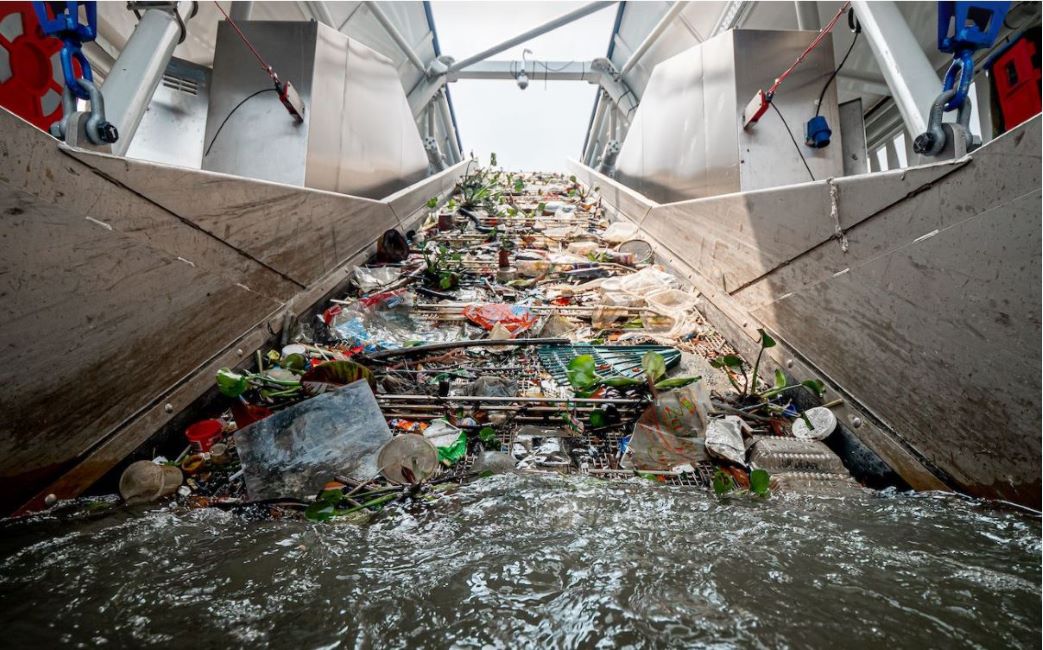Most of the waste that reaches the world’s oceans travels through rivers. The “Interceptor,” made by The Ocean Clean, seeks to remove debris from rivers before it comes saltwater and inflicts further damage. In addition, the construction of the device is environmentally friendly and works unattended.
The Unique Plastic Waste Catcher
According to research by The Ocean Cleanup, 1,000 of the world’s rivers are responsible for 80 percent of global ocean pollution. In addition, as many as 8 million pieces of plastic enter the oceans every day. This fact led to the creation of the Interceptor, which captures wandering waste from rivers.

The designers made Interceptor accordingly as a catamaran. The water pushing the plastics in front of it passes through the vessel’s center and moves the waste onto a mesh belt, which filters the water and traps the plastics. The water returns to the river while the plastic travels from the conveyor belt to the boat’s bins. The six containers have a capacity of 50 cubic meters, and they can hold 50,000 kg to 100,000 kg of waste per day.
Ecological Cleaning Equipment with No Operator
The Interceptor runs automatically on solar power, equipped with lithium-ion batteries. Silent equipment without mixtures does not damage or disturb wildlife. The vessel does not need an operator. Once the bin is almost full, the system sends an automatic text message to the operators, who empty the bins and return them to the Interceptor.
The company has currently designed four Interceptors. Two are located in Jakarta, Indonesia, and Klang in Malaysia. The other two facilities will be applied in the Mekong Delta in Vietnam and Santo Domingo in the Dominican Republic. The next sub-target is to install more in rivers in Bangkok, Thailand, and Los Angeles.
In October, Boyan Slat, CEO of The Ocean Clean, introduced the innovative “Interceptor” on Rotterdam’s river, the Netherlands. Viewers could watch the first working, scalable device directly on the water at all. The organization aims to install the Interceptor in the world’s 1000 most polluting rivers by 2025.
Source: greenmatters.com/p/ocean-cleanup-rivers-interceptor-trash, theoceancleanup.com/




